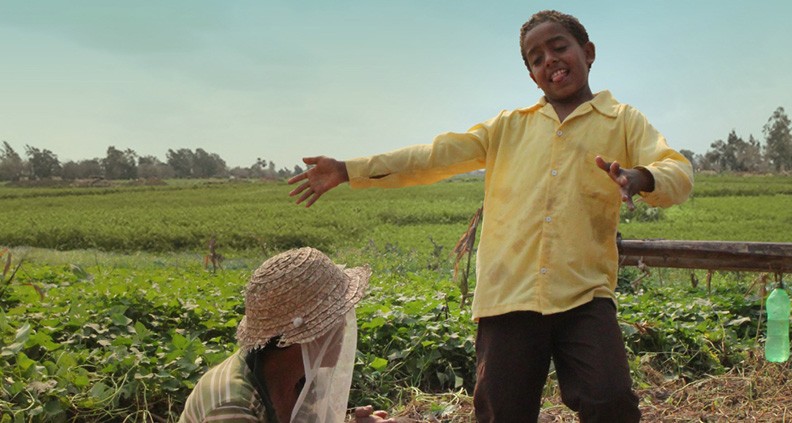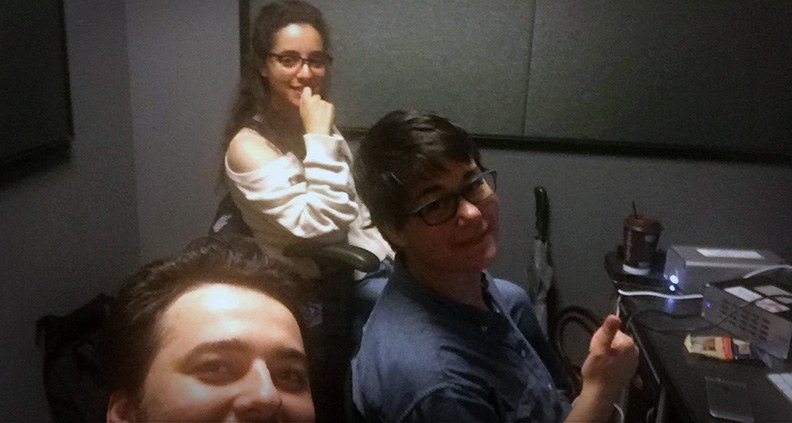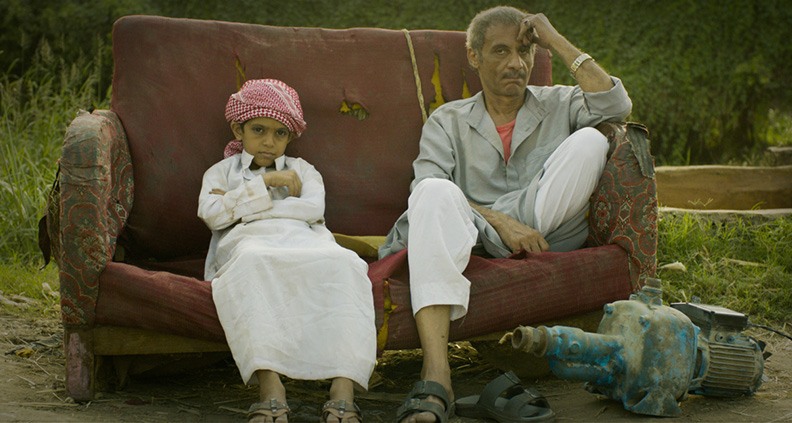We pulled up in a motorcade to a theater with gold Cannes laurels on its door. I walked the red carpet (to 2Pac’s “California Love”) past a canyon of press and up the stairs into the 2,300-seat Palais des Festivals Theater. Our film—Yomeddine, for which I was the editor—won the Francois Chalais Prize, for a film dedicated to the values of journalism and life affirmation. It was a moment, to say the least. Back home in Brooklyn, people asked me, “How did you get that editing gig?” Finding opportunities often involves more luck than hard work, but there is a way to create a path with fewer self-generated obstructions. Basically there are three primary reasons why you—or anyone—should consider saying “yes” to a potential new work opportunity:
It will advance your career. This could mean a few different things. The opportunity may provide you with a new skillset or experience using a new technology that will look good on a CV. It might allow you to work with someone you admire. Or the production value, writing or acting is a cut above—so rather than editing from a defensive position, you’re actually learning from the footage. Stuff like that. It pays well. You care passionately about it.
Here’s the catch: the job must fulfill two out of three of these reasons—and if it doesn’t you should not, in my opinion, take the job.
HUNTING FOR SCRAPS
It’s not easy to trust this advice. Last summer most of the Facebook groups that share gigs for editors were posting ironic job announcements: Must have 5+ years experience, your own equipment a plus, serious inquiries only. No pay. How dare I be selective when there’s a drought? The previous month I’d sent out what I call “crab fishing” emails—in which I blind carbon copy all my friends in the industry announcing that I’m looking for editing work, with my resume and reel available upon request. Usually something always comes back. But that summer I got nothing. No bites. Well… there were a few. Desperate, I decided to ignore my own “two out of three” rule and pursued them. I waxed poetic with a branded content team that “commercials were the haikus of cinema,” bragged to the showrunner of a competition cooking show that I was incredible at music cues and SFX transitions and submitted myself to be an assistant editor on a union film, even though at that point I had already edited several independent features. I didn’t get any of these jobs. I was either overqualified, not experienced in a particular genre or flat-out uncharismatic and sales-person-desperate in the interview. I was Googling “What to do when your career is a mess?”—but the stock photos of businessmen with their heads down on their desks weren’t helping.
THE MAGIC EMAIL
I decided to send one more email, to a sound designer I’d worked with before. In lean times I tend to panic and present myself as a jack-of-all-trades: Doc! Fiction! Shorts! Industrials! Music videos! Reality! Avid! Premiere! After Effects! I can do it all, honest… now why won’t someone hire me? But what did I want to do? I wanted to edit a feature-length fiction film that focused on story. I wanted a project to fall in love with. So I sent that email. A text came back right away from my friend: call me. “Listen,” he said. “This producer/director team [Dina Emam and Abu “AB” Shawky] just came for a sound bid, but they’re also looking for an editor. They showed me a reel. I can’t get it out of my mind. Watch it and if you like it, I’ll connect you.” This was for Yomeddine. Whoa. The three-minute sizzle reel opened with an extreme wide shot of a figure picking through debris on “Garbage Mountain.” The shots progressed to slowly reveal details; hands, eyes, and finally, Beshay—a man scarred by leprosy. Rady Gamal, a first time actor, had the presence of a great star. I wanted to keep looking at him and I could easily feel the connection between him and Ahmed Abdelhafiz, playing Obama, an orphan who comes along with Beshay on his journey. The film was intimate and character-driven, but epic in scale and cinematography. It would be my first feature cut in Premiere, in a foreign language I had never edited before. Before I even knew the rate, I knew the project met two out of my three criteria. I wrote to Dina and Abu saying that I would “crawl through glass” to work on this movie, and I could meet with them immediately. Luckily, this was just the right amount of enthusiasm that they were looking for.
DON’T TRY TO BE ATTRACTIVE
A friend of mine once equated a job interview to a blind date: “See if you relate to the person. Listen. Don’t just say random things in the hopes of being attractive. You will be attractive if you both share chemistry. (For those of you also making a foray into the dating world, you’re welcome.) The next day I met with Dina and Abu and we had a two-hour conversation. They told me the history of the project and I asked how they liked to work with editors. I talked about my collaborative style and strengths that could be specific to what they were looking for. We strategized workflow and how to meet deadlines. Then, the big question: Money. Bucking the current trend that sees experienced film editors working for minimum wage, I dug deep and asked for a rate that was realistic for their budget—and mine. They were meeting with a few more people, but there was a giddy elation in the air as they told me “Send us your reel!” For an independent film, this was now a three out of three.
THE REEL
I ran home and ransacked my drives. I had scenes that could address pacing and naturalistic acting (observational documentary) but my fiction was mostly percussive comedy, bright primary colors and locked off shots. Eventually, I managed to scrounge up some bits of moody drama. The best I could do. “Damn it,” I texted my friend. “I was so close.” “Don’t worry! I told them you’re a great editor!” he wrote back. Me: “YOU say that, but my reel is bizarre.”
PEOPLE WHO SAY “NO” DON’T KNOW
I didn’t hear back from them the next day. A motivational finance slogan popped into my head: “People who say no often don’t know.” Another adage floated in from my mom, who, in times of hesitation and in the face of potential failure would always rhetorically ask, “What will happen if you don’t? Not a damn thing.” I texted Dina: “It occurred to me my reel might not reflect what I can do. If you guys have a few scenes, I would be happy to edit them as an audition.” Neither of us had anything to lose. Dina immediately replied. The footage had marker translations on the timelines. They sent me highly compressed rushes and a project file. That afternoon I edited with all my heart, intuition and knowledge. And then… I booked the gig! What transpired over the next few months was one of the most rewarding editing experiences of my life. When Yomeddine got into Cannes, I couldn’t believe how quickly my life changed after one email—and the years of work that preceded it. The moral: Pay your dues, but pay them strategically. The biggest stalls in my career were caused when I would financially tread water with a “meh” project and tell myself, “I’m just doing this for now.” Those for nows add up. If you find your boat drifting, knowing what you want to do is the first step towards righting your compass. When you desire to contribute artistically to a financially risky, highly competitive, impossibly uncertain industry, you need all the tools of self-fortitude you can get. So, I leave my fellow editors with one last motivational quote: “You can’t hit a target you can’t see”.
To learn more about Yomeddine, please visit the film’s IMDb page. The film will be released later this year. To learn more about Erin Greenwell (including how to hire her!) please visit her website. Learn how to become a Member of Film Independent by visiting our website. Be sure to follow us on Twitter, Facebook and Instagram and don’t forget to subscribe to Film Independent’s YouTube channel.




